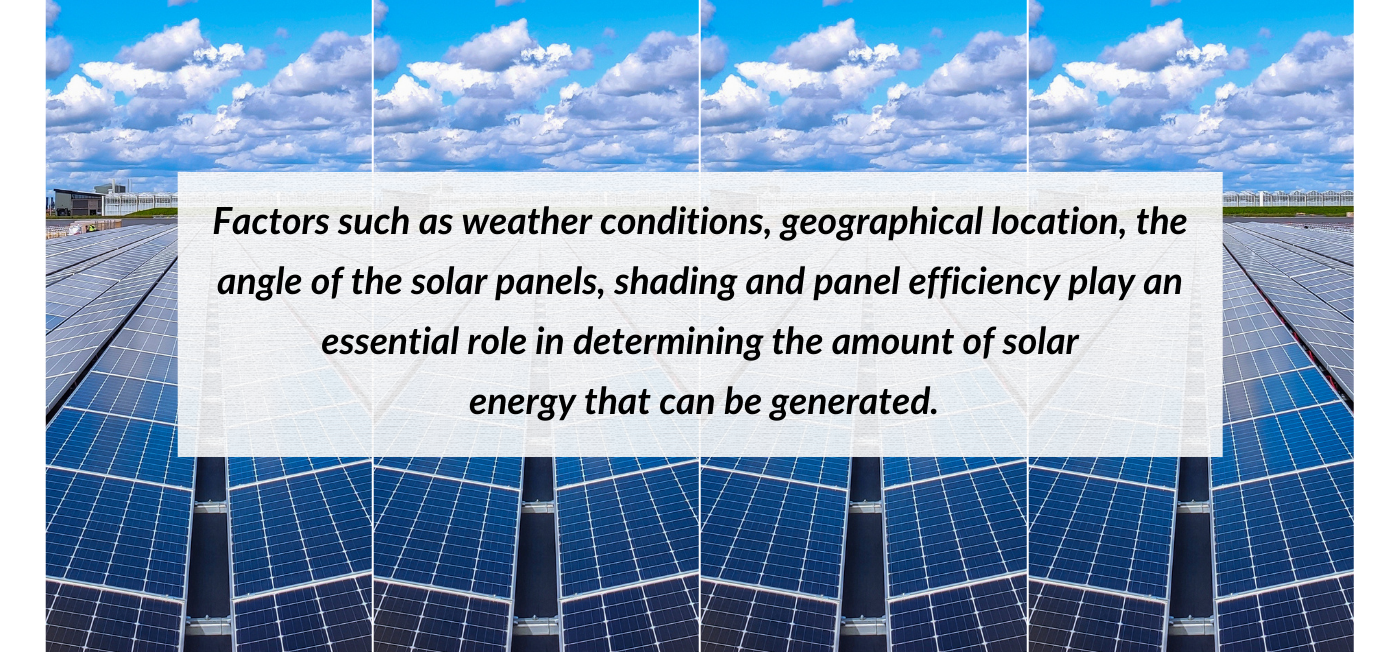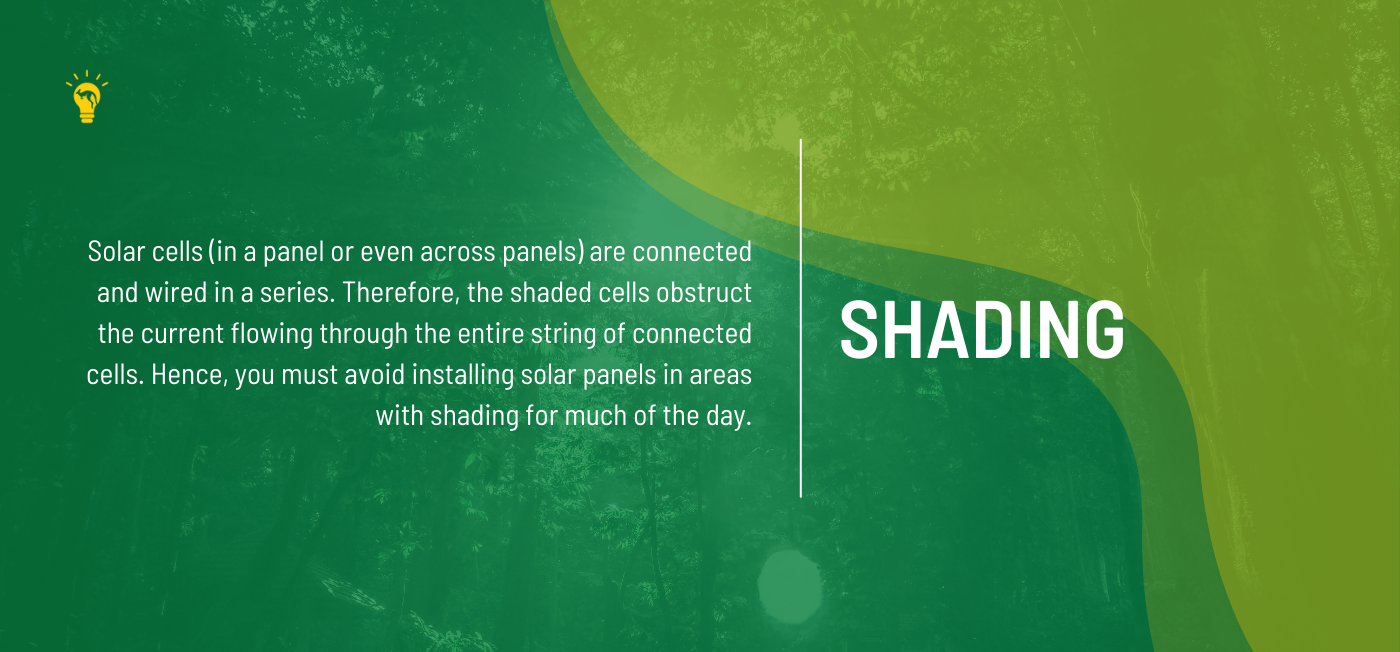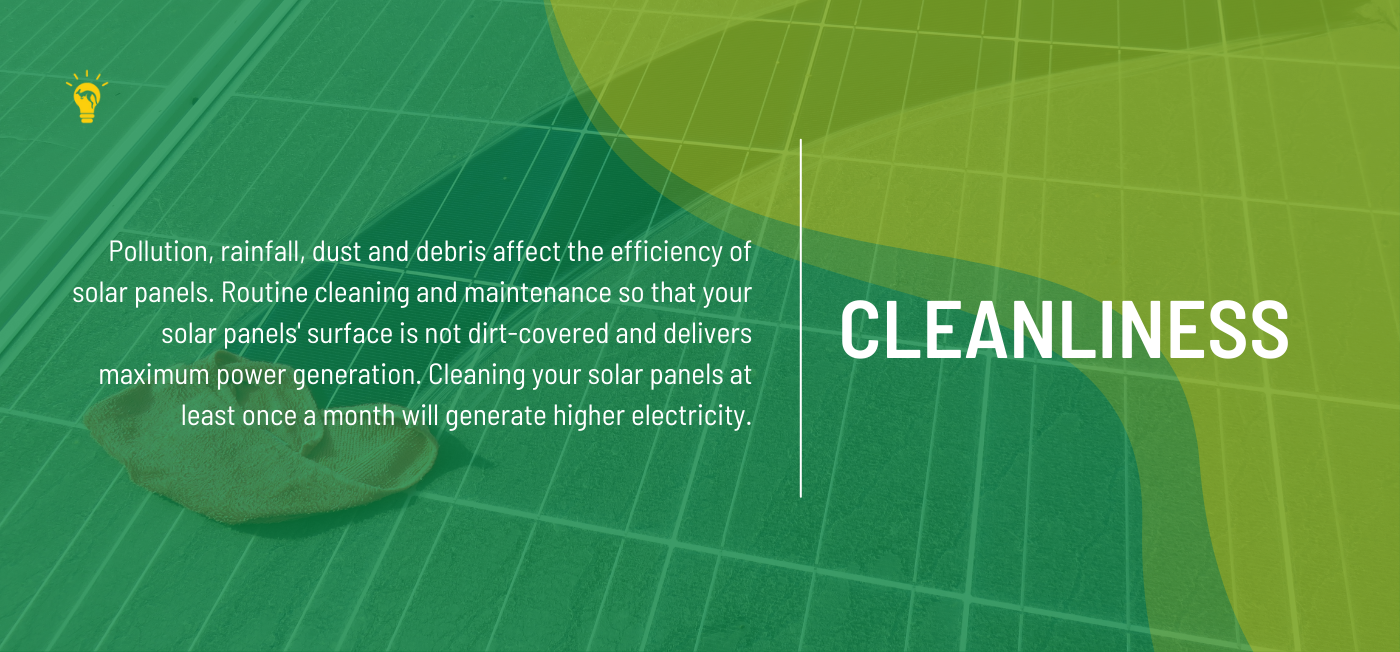In recent years, solar energy has gained immense popularity as an alternative to conventional energy sources. The power of the sun can be harnessed to produce electricity using solar panels. However, the amount of energy produced by solar panels is affected by various factors. Understanding these factors is crucial for maximising energy production from solar panels and optimising the design of solar energy systems.

Factors such as weather conditions, geographical location, the angle of the solar panels, shading and panel efficiency play an essential role in determining the amount of solar energy that can be generated. This month, Solaris Tech will list the factors that affect solar energy production and the effects of rain, storm and cold weather on solar panels.
Let us get started!

A common misconception is that higher temperatures increase solar panels' power generation. The truth is that solar panels work at full efficiency at around 25oC, which declines by about 0.25% for every degree above 25oC. Exposure to excessive heat causes the voltage between the solar cells to drop, reducing their optimum generation capacity. Hence, when the temperature is 45oC in summer, a 100Wp solar panel will produce electricity equivalent to 75Wp.

If any of your solar panels are covered at any time of the day, we may estimate that the production drop will be equivalent to the shaded area. That is not true. The power loss can be much higher. Solar cells (in a panel or even across panels) are connected and wired in a series. Therefore, the shaded cells obstruct the current flowing through the entire string of connected cells. Hence, our experts recommend that you avoid installing solar panels in areas that are in the shade for much of the day.
Solar panels must be positioned and angled appropriately to maximise the direct sunlight received during the day. As the direction of the sun changes continuously, ideally, solar panels need to be adjusted regularly to ensure that sunlight falls directly on the surface and that you get the most out of the sunshine hours. However, manual adjustment is not feasible. Fortunately, there are technologies available that enable solar panels to track the sun’s movement automatically.

Pollution, rainfall, dust and debris affect the efficiency of solar panels. Routine cleaning and maintenance so that your solar panels' surface is not dirt-covered and delivers maximum power generation. Cleaning your solar panels at least once a month will generate higher electricity.
The local weather varies from one region to another in Australia, as does the amount of annual sunshine. The location impacts solar insolation - the amount of solar energy falling on every cm2/min. If you are getting a solar system for your business or industrial facility, consider annual solar radiance.
Impact of weather conditions on solar panels
Many solar energy distributors in Australia provide high-quality solar panels that can withstand heavy rainfalls, storms and other weather conditions for 25 years or even longer. The exterior layer of glass allows rainwater and storm dust to slip right off the panels and protects against the surface heating of solar panels. However, a direct lightning strike can damage your panels and other solar system components due to a sudden voltage surge.

Solar panels generate electricity much lower than the optimum generation level, even during rains, storms, and cloudy days. Although the sunshine hours are reduced during the winters, it is still more than enough in most regions of Australia to produce the optimum level of electricity. Moreover, you can use solar power battery storage to store electricity at night.
In conclusion!
Knowing what factors affect solar panel production is essential to ensure you get the most savings possible from your system. If you have any other questions about solar panel installation or want to speak with one of our trusted solar educators, please call 1300-946-524.
SHARE ON